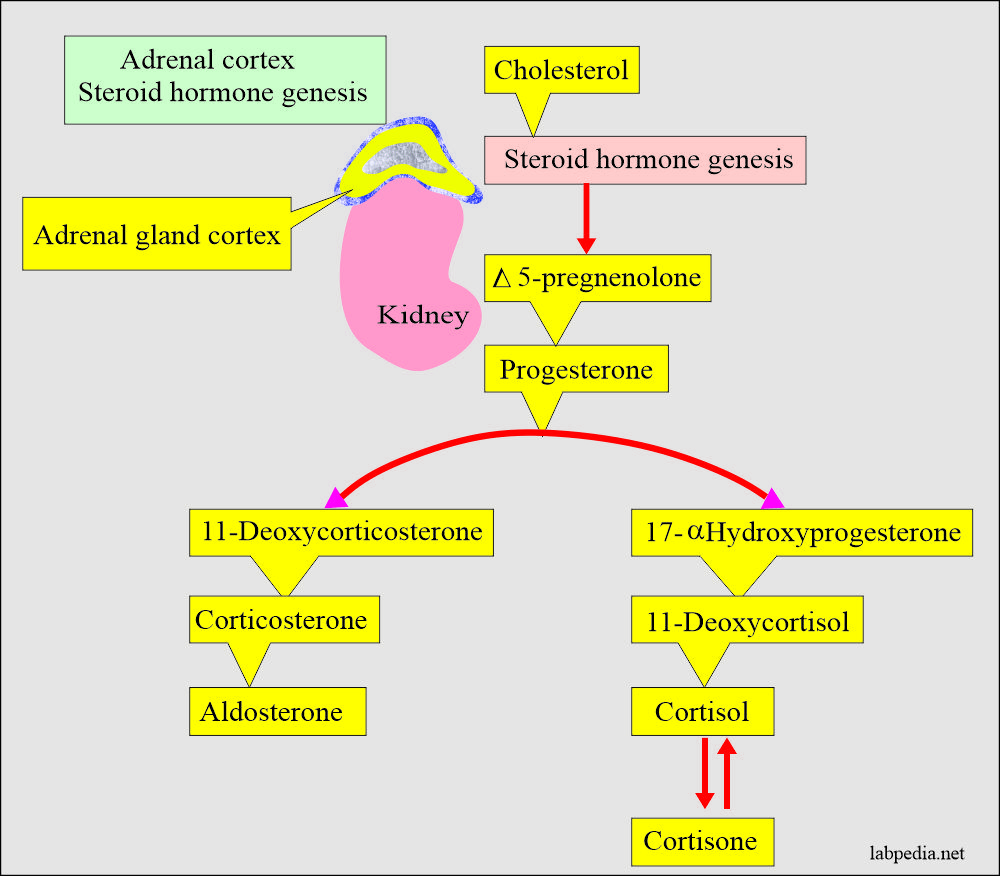

In Addison's disease, just the opposite is the case and, due to a disorder in the adrenal gland itself, the adrenal gland is unable to produce cortisol, if at all. The cause may be a tumor in the adrenal gland itself or by a tumor in the pituitary gland, which controls the adrenal gland. In Cushing's syndrome, the adrenal gland makes too much cortisol. There are some (rare) diseases in which cortisol production is disturbed. Among other things, this causes a feeling of hunger. During waking, more cortisol is released. The body's production of cortisol follows a circadian rhythm, meaning that production is not the same at every time of day. Therefore, a better name would be: "stress-response hormone. Cortisol ensures that this loss of energy is compensated again. This energy is used to bring the body back to homeostasis at the moment of stress, adrenaline and norepinephrine are released to make the body more alert and ready to fight/flight. From these, glucose (energy) can be made. It causes certain proteins in muscles to be broken down, releasing amino acids. Cortisol can be used as an anti-inflammatory in allergic reactions, in lung disease (COPD) and numerous dermatological conditions such as severe forms of eczema.Ĭortisol is sometimes called the stress hormone because it is released during any kind of stress, both physical and psychological.

When used as a drug and in substitution therapy in Addison's disease, among others, it is usually called hydrocortisone. Cortisol is a corticosteroid, a hormone made in the adrenal cortex from cholesterol.


 0 kommentar(er)
0 kommentar(er)
